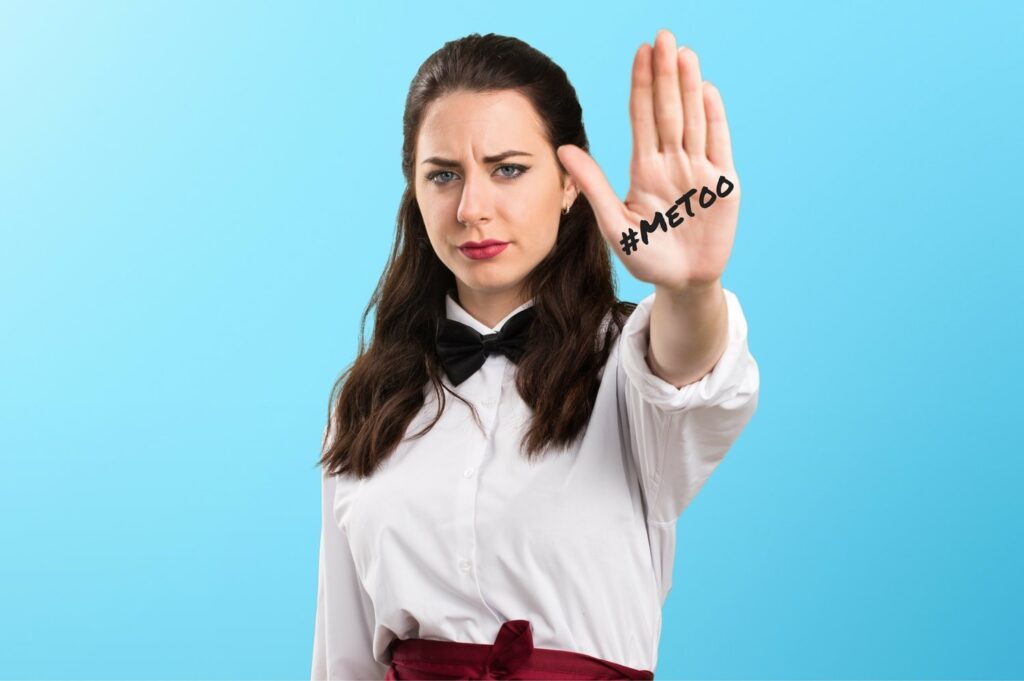
The wave of the #MeToo movement has recently shed attention on the prevalence of sexual harassment against restaurant wait staff, where workers are largely dependent on tips and thus, the generosity and goodwill of their customers. Recent articles featured in the New York Times and the Harvard Business Review have highlighted the pressure many restaurant workers feel to downplay sexual harassment and engage in polite flirtation.
What many of the recent articles have not explored, however, are the legal obligations of restaurants to address sexual harassment of their employees by their customers. While most people are generally aware that employers can be held liable where supervisors sexually harass their underlings, or even where co-workers engage in a pattern of harassment at work, there is more uncertainty surrounding an employer’s obligation to address and remedy a customer’s sexual harassment of employees. While the United States Supreme Court has not directly addressed this issue, most of the courts that have weighed in have concluded that an employer can be held liable for the sexual harassment of its employees by its customers, where the employer knows or should know of the harassment and fails to take timely action to address it. The rationale behind these opinions is that ultimately, the employer controls its workplace and can be held liable if it exercises this control negligently.
The case most-often cited for employer liability for restaurant customer sexual harassment is Lockard v. Pizza Hut, Inc., 162 F.3d 1062 (10th Cir. 1998). Lockard involved a waitress working at a Pizza Hut franchise in Oklahoma who earned $2.35/hour plus tips. One evening while she was at work, Ms. Lockard waited on two customers who made sexually offensive comments to her and grabbed her by the hair. Ms. Lockard informed her supervisor of the customers’ conduct, but her supervisor responded, “You were hired to be a waitress. You waitress.” When Ms. Lockard returned to their table, one of the customers groped her. Ms. Lockard quit on the spot.
In affirming the restaurant’s liability for the sexual harassment Ms. Lockard experienced from the restaurant’s customers, the Tenth Circuit Court of Appeals noted that Ms. Lockard’s supervisor ordered her to continue waiting on the sexually-aggressive customers and in so doing, placed her in “an abusive and potentially dangerous situation, although he clearly had both the means and the authority to avoid doing so by directing a male waiter to serve these men, waiting on them himself, or asking them to leave the restaurant.” The court concluded that the restaurant was liable for the supervisor’s failure.
Regulations promulgated by the EEOC further support an employer’s responsibility to address sexual harassment by the employer’s customers. Specifically, Title 29 of the Code of Federal Regulations provides that an employer may be “responsible for the acts of non-employees, with respect to sexual harassment of employees in the workplace, where the employer (or its agents or supervisory employees) knows or should have known of the conduct and fails to take immediate and appropriate corrective action.” 29 C.F.R. § 1604.11(e).
In addition to federal civil rights statutes, employees in New York City are further protected by the New York City Human Rights Law, which must be construed broadly in favor of discrimination and harassment plaintiffs, to the extent that such a construction is reasonably possible.
Wigdor LLP has been at the forefront of this issue, representing dozens of victims of sexual harassment and sexual assault in the restaurant industry to help them achieve justice and accountability. If you are experiencing sexual harassment or other inappropriate conduct or treatment at work, call (212) 257-6800 to speak to an attorney who can advise you of your legal rights and answer any questions you may have.
| Moorea Katz Associate |
| WIGDOR LLP 85 Fifth Avenue, New York, NY 10003 T: (212) 257-6800 | F: (212) 257-6845 |
| mkatz@wigdorlaw.com wigdorlaw.com |